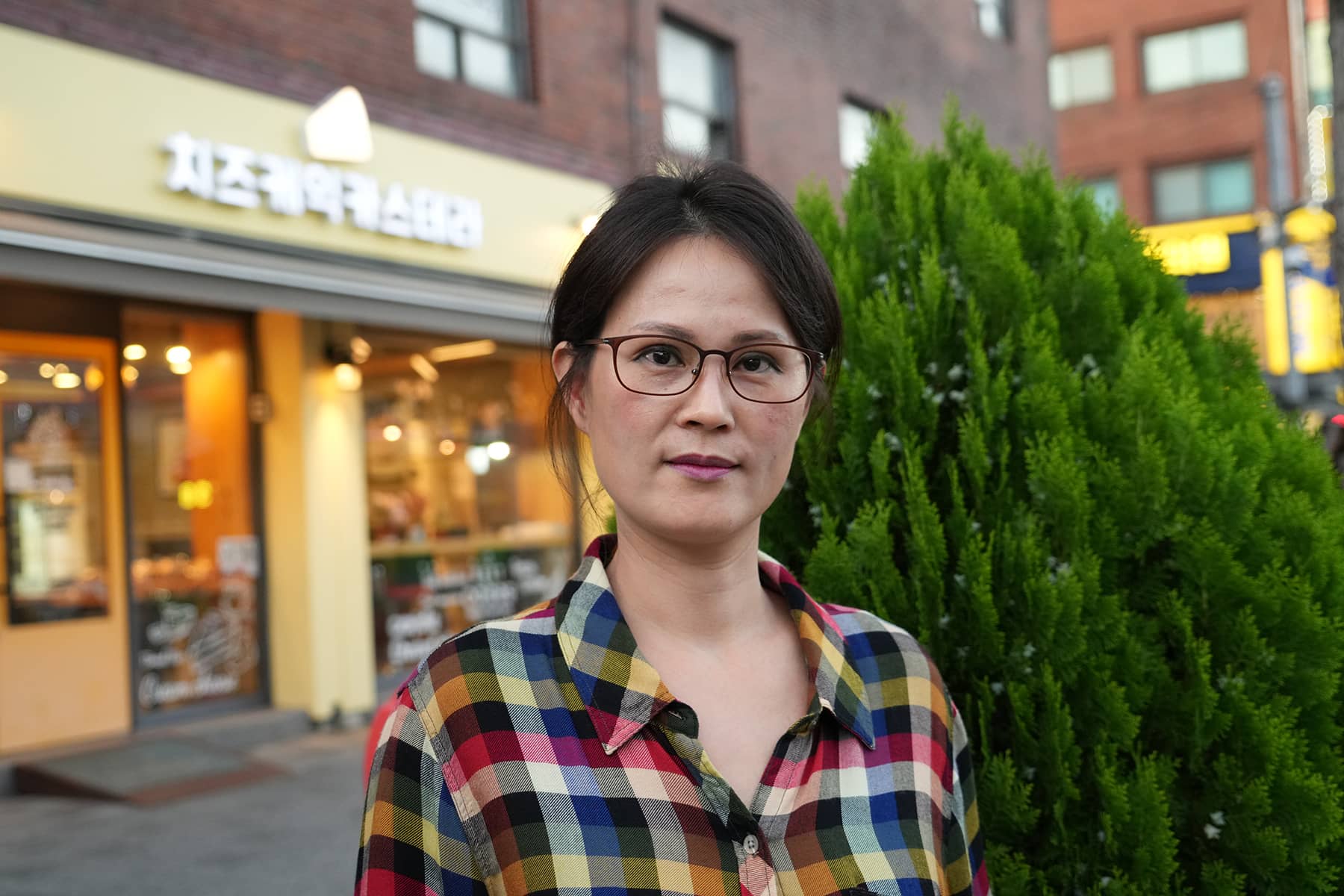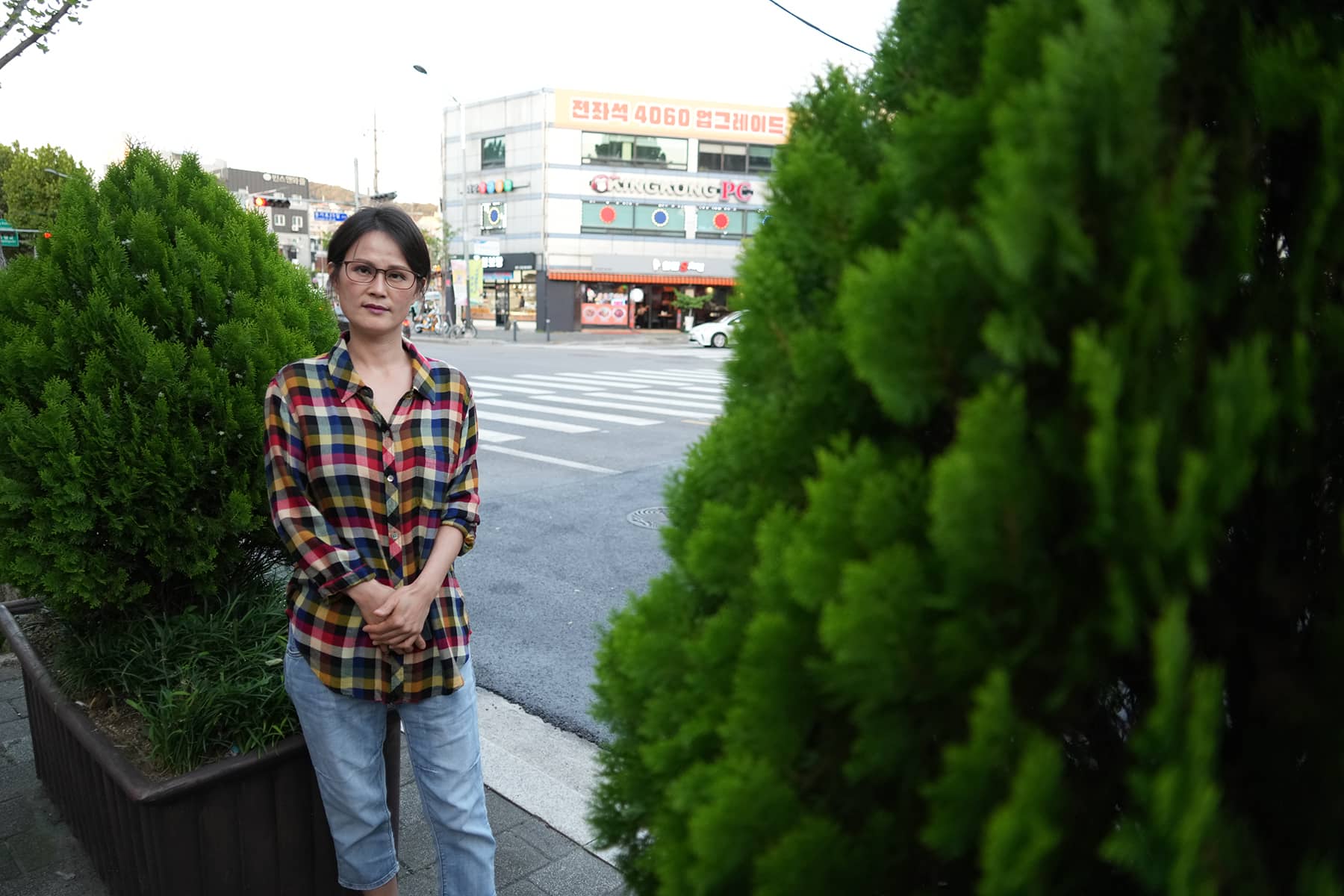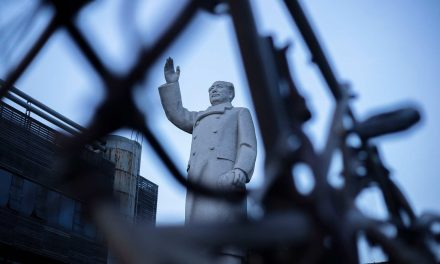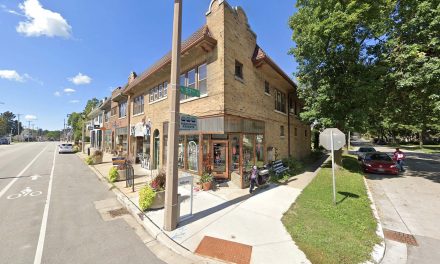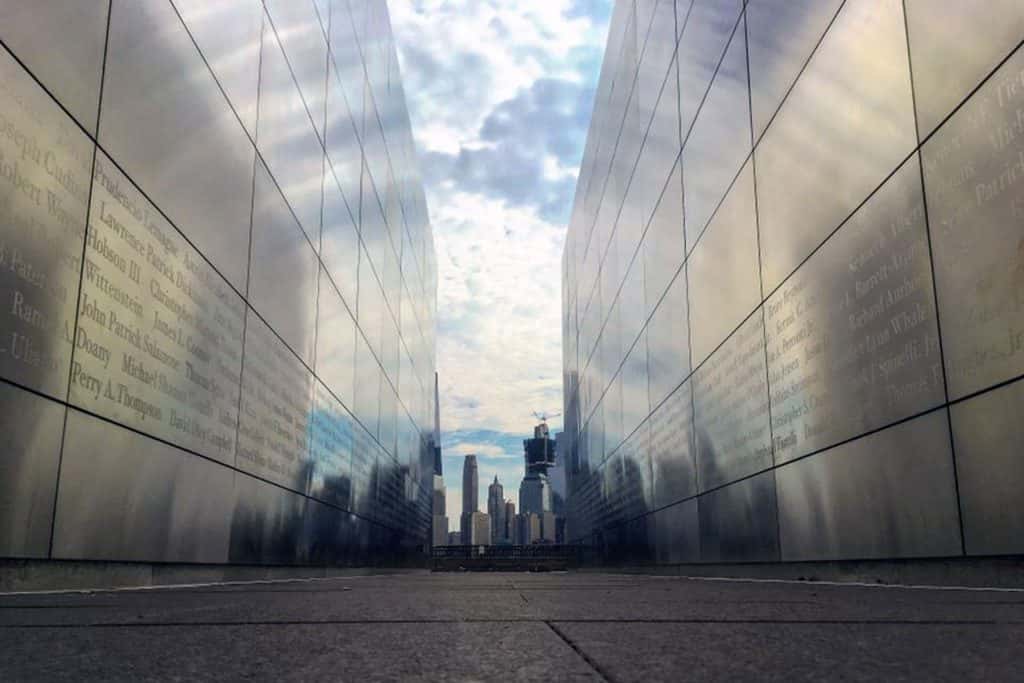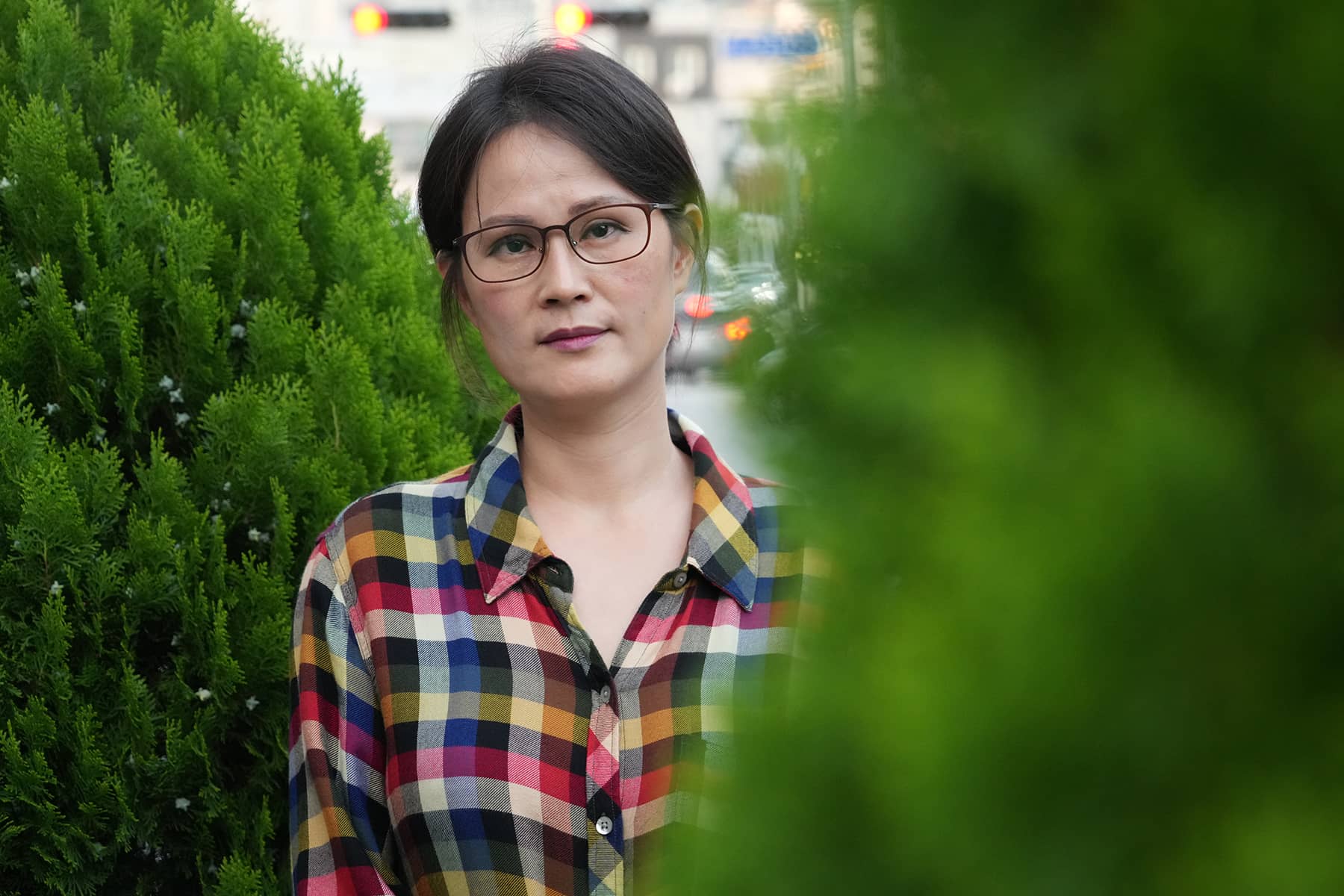
Milwaukee Independent made several attempts through official channels to schedule an interview with any North Korean defector who would be willing to speak with an American journalist. After two months of effort, it seemed like an impossible task to arrange and the idea was eventually abandoned. Then just two days before the editorial assignment in Korea concluded, Milwaukee Independent sat down with a North Korean defector at a Starbucks in the Bukgajwa neighborhood of Seoul.
It is difficult for foreign journalists to interview North Korean defectors, due to the sensitive and often dangerous circumstances surrounding how they escaped and their continued vulnerability. Many defectors fear retaliation from the North Korean regime, either for themselves or for family members still in the secretive country.
Defectors also carry significant emotional and psychological trauma, which makes trust-building crucial but challenging. Additionally, the anonymity of defectors is often prioritized by NGOs and organizations that protect them, adding another layer of complexity for journalists seeking access.
As a result of these and other factors, interviews are very rare and must be handled with extreme caution and sensitivity. This was the case for Milwaukee Independent, with little time to prepare for the unexpected meeting. The opportunity came shortly after returning from the Goseong Demilitarized Zone (DMZ) along the mountainous eastern coast of South Korea, and just hours before beginning the process of returning to the United States.
With cups of hot tea and the assistance of a Korean translator in the early evening, Milwaukee Independent spoke with a North Korean defector named “Jin” about her life and experiences. Many of her stories were edited due to security concerns. The interview also remained focused on her personal experiences, without asking for a wider view of general life and conditions in North Korea.
During an exclusive interview in late September, Jin reflected on her childhood, her family, her journey to escape North Korea, and her newfound life as a singer and musician in South Korea. Her story is one of hardships, resilience, courage, and a pursuit of freedom that brought her to a place where she could finally express her authentic self without fear of punishment or persecution.
Jin was born in Yanggang-do, a heavily mountainous and cold province in North Korea along the Chinese border. The capital city of Hyesan, being close to the Yalu River, was known for its strategic location. It has also played an important role in cross-border trade and smuggling.
Raised primarily by her mother and maternal grandparents, Jin recalled her childhood with a mix of fondness and grief.
“The best things when I was growing up were my friends and family. But the system … what we called the “Chaeje” (체제), that was never good,” said Jin. “For the 30 years I lived in North Korea under the regime, my life was filled with suppression, surveillance, and, at times, privilege. But no joys ever felt joyful.”
The people who Jin respected the most in the world were her maternal grandfather and grandmother. Her grandfather had studied medicine in Manchuria before returning to North Korea to work as a biology teacher. In his later years, he became involved in the gemstone trade.
Jin’s father was mostly absent from her day-to-day life, and her mother sang in the opera. Citizens of North Korea do not get to choose their profession. Her mother was not musically inclined, but she was chosen to become an opera singer because of her appearance and academic record.
“She wasn’t famous because she didn’t have a natural ability for music. My father, on the other hand, had a deep passion for music. So I inherited that talent from him,” said Jin. “I often joke that I’ve been singing since I was in the womb.”
Despite the harsh realities of life under the regime, music became a significant part of her identity and an outlet for her emotions. It also gave her life a sense of direction and filled it with purpose.
After Jin graduated from the Hyesan College of Arts in Yanggang Province, she had the rare good fortune to begin a musical career. But being a singer in North Korea was not like the glamorous life of a K-pop artist in South Korea.
She worked as one of five “Propaganda Singers” for the “Broadcasts to the South” station, which was designed to disseminate disinformation that targeted South Koreans. Jin performed modified versions of South Korean songs to suit the regime’s rhetoric and political agenda.
“We sang South Korean songs, but they rewrote the lyrics to fit their message,” said Jin. “One such song was ‘Maze of Love,’ originally recorded by South Korean singer Choi Jin-hee. The lyrics were rewritten for psychological warfare purposes. Lines about love and passion were replaced with messages criticizing the South Korean military and promoting North Korean ideology.”
Despite being part of the regime’s propaganda machine, Jin found solace in her music. She felt at times it was like living a dream to sing South Korean songs, even if they were corrupted for the government’s purposes.
While her musical talent was evident, life in the North was still fraught with danger, even for those who worked for the regime.
Jin’s mother, despite being an opera singer, struggled to make a living off her state salary and had to engage in side jobs, a common practice in North Korea to survive.
“In North Korea, no matter what job you have, you can’t live off your salary alone. Salaries don’t even cover the price of 1kg of rice. So, whether you’re famous or not, you have to do extra jobs,” said Jin. “My mother ran a business and was relatively well-off by North Korean standards. But in North Korea, if you are well-off, they monitor you.”
Despite her mother’s relative success in business, the family’s financial stability made them targets for the North Korean government. Under the socialist system, wealth accumulation was considered suspicious and dangerous.
“You’re not supposed to be rich, and if you do well, you become a target. My family’s prosperity was seen as a threat, leading to increasing surveillance and harassment by the authorities,” said Jin. “My mother was monitored, her money was eventually taken, and she became ill from it all.”
Jin’s life was further upended when the North Korean government introduced a currency redenomination. The reform was intended to curb inflation and crack down on the growing private markets, but it had disastrous consequences for many North Korean citizens.
Her mother lost all of the family’s wealth, which had been accumulated through years of hard work in her side businesses. The event was a turning point for Jin. Her trust in the system, already fragile, was shattered.
“In late 2009, during the currency reform, my mother lost all her wealth to the government and suddenly passed away. After experiencing that, my distrust of the system grew uncontrollably. So I decided to leave,” said Jin. “By then, I was married with a son and I had a younger sibling who stayed at home. So in some ways I was stuck. But I was the oldest adult left in my family. From that perspective, I was alone.”
Over the next few years, Jin continued to face increasing scrutiny from security forces. By 2012 she found herself accused of espionage by the government without evidence.
“They arrested me, claiming I earned money illegally. Without any proof they also accused me of being a spy, asking how I earned the money. I had no family left in North Korea so they called me a spy, even though I wasn’t,” said Jin. “They arrested my husband too, as a pressure tactic. There was also a professor involved in my case, and they arrested her to force her to monitor me. They wanted to know how I earned money. I used to sell cosmetics in North Korea, but they just made up a story about me being involved in espionage.”
One day in late 2012, Heo Young-hee, a Professor of Vocal Music at the College of Arts, was taken into custody by the North Korean authorities. Then in her 50s, Heo was instructed to monitor Jin, who had become Heo’s protégé in order to expand her musical talents.
Heo was told during her interrogation that Jin was suspected by the authorities of smuggling South Korean goods. But Heo did not carry out their instructions. Instead, she secretly warned Jin about the situation.
“My professor said, ‘You’re in danger. Run away quickly. It’s better to leave North Korea before being captured.’ So I thanked her and began planning my escape,” said Jin. “But the situation was discovered and both of us were confined to a detention facility in January 2013.”
During the 76-day detention ordeal, Jin and Heo suffered from the oppressive reality of their country’s political system. It was not long after their eventual release that both women fled North Korea. For Jin, she left behind everything she had ever known, which included her husband and 8-year-old son.
Jin’s process to escape was fraught with danger. She crossed the border into China, a perilous task for any North Korean defector, and from there she made her way to Laos and Thailand before finally arriving in South Korea.
“The area where I lived was near the border with China, so I crossed the border with help from some border guards,” said Jin. “The journey was one of both physical and emotional hardship, but it was also a journey toward freedom.”
Once in South Korea, Jin had to completely rebuild her life from scratch in a very strange yet somewhat familiar environment.
“Other than not being able to see my family and friends, in my opinion, life here is much better,” said Jin. “However, the economic challenges for a North Korean defector are significant. I had to start over being alone at 30. It’s tough without having anything. But, I finally have mental freedom, and I’m happy.”
Jin’s transition to life in South Korea was not easy, but over time she managed to find a sense of community and belonging.
“I’ve met many good people, and I’m doing well. Despite initial difficulties adjusting to a new environment, I found that the shared language and cultural background with South Koreans helped me to integrate more easily than I might have in another country,” said Jin. “Because we share the same language and culture, there is a strong sense of connection. Koreans are warm-hearted and take an interest in others.”
At 40 years old, Jin reflected on her ten years in South Korea with a sense of gratitude for what she has and who the experience allowed her to become.
“Living here in South Korea, I’ve learned a lot, and it feels like I’ve become more human,” said Jin. “Pain makes you realize many things. We all have to adjust to wherever we are. People are adaptable, and I’m no different.”
Music also played a large part in her transition to life in South Korea, as a career and lifeline. She considered the talent to be a blessing, as it helped her navigate the challenges of life in North Korea, gave her the courage to escape, and offered a form of stability during resettlement in the South.
Jin still pursues her passion for music. She is attending graduate school and continuing her vocalist career in a group called OK Band, which promotes the message of One Korea and aims to bridge the divide between North and South.
In addition to her live performances, Jin has embraced social media. During the COVID-19 pandemic in 2021, she started a YouTube channel where she shares her music with a growing audience.
Despite the many challenges she has faced, Jin remains positive. She hopes that more people will become aware of the situation in North Korea and that international attention will help bring about positive change.
Jin noted that while Americans may be familiar with North Korea’s political leadership and military actions, they often do not see the human suffering that takes place behind the regime’s closed doors.
“I think the United States is an amazing country, playing a leading role globally, serving as the world’s guardian,” said Jin. “It’s important for Americans to know that there’s a divided country like Korea. On one half of this divided land, there are people living lives akin to slavery. If they could just pay attention to that, we would be grateful.”
Jin also spoke about the deep divisions between North and South Korea, despite their shared cultural roots.
“Although we are the same people, living apart for over 70 years has caused many differences. The system someone lives under significantly impacts how they live, and I’ve come to understand that deeply since I was able to escape,” said Jin. “I don’t want to say that North Korea is special just because it’s my home. But it’s a place where people, just like us, live. They deserve the same freedoms that we do in countries like South Korea and the United States.”
After all of the things that Jin has experienced, Milwaukee Independent ended the interview with one final question. What continued to give her hope?
“Hope? If I were to talk about my hope as a Korean, it would be that beyond the reunification of North and South Korea, the entire world can live together in peace, without war. That is my hope,” Jin added.
Maze of Love (original song by Choi Jin-hee, cover by Jin)
- Exploring Korea: Stories from Milwaukee to the DMZ and across a divided peninsula
- A pawn of history: How the Great Power struggle to control Korea set the stage for its civil war
- Names for Korea: The evolution of English words used for its identity from Gojoseon to Daehan Minguk
- SeonJoo So Oh: Living her dream of creating a "folded paper" bridge between Milwaukee and Korean culture
- A Cultural Bridge: Why Milwaukee needs to invest in a Museum that celebrates Korean art and history
- Korean diplomat joins Milwaukee's Korean American community in celebration of 79th Liberation Day
- John T. Chisholm: Standing guard along the volatile Korean DMZ at the end of the Cold War
- Most Dangerous Game: The golf course where U.S. soldiers play surrounded by North Korean snipers
- Triumph and Tragedy: How the 1988 Seoul Olympics became a battleground for Cold War politics
- Dan Odya: The challenges of serving at the Korean Demilitarized Zone during the Vietnam War
- The Korean Demilitarized Zone: A border between peace and war that also cuts across hearts and history
- The Korean DMZ Conflict: A forgotten "Second Chapter" of America's "Forgotten War"
- Dick Cavalco: A life shaped by service but also silence for 65 years about the Korean War
- Overshadowed by conflict: Why the Korean War still struggles for recognition and remembrance
- Wisconsin's Korean War Memorial stands as a timeless tribute to a generation of "forgotten" veterans
- Glenn Dohrmann: The extraordinary journey from an orphaned farm boy to a highly decorated hero
- The fight for Hill 266: Glenn Dohrmann recalls one of the Korean War's most fierce battles
- Frozen in time: Rare photos from a side of the Korean War that most families in Milwaukee never saw
- Jessica Boling: The emotional journey from an American adoption to reclaiming her Korean identity
- A deportation story: When South Korea was forced to confront its adoption industry's history of abuse
- South Korea faces severe population decline amid growing burdens on marriage and parenthood
- Emma Daisy Gertel: Why finding comfort with the "in-between space" as a Korean adoptee is a superpower
- The Soul of Seoul: A photographic look at the dynamic streets and urban layers of a megacity
- The Creation of Hangul: A linguistic masterpiece designed by King Sejong to increase Korean literacy
- Rick Wood: Veteran Milwaukee photojournalist reflects on his rare trip to reclusive North Korea
- Dynastic Rule: Personality cult of Kim Jong Un expands as North Koreans wear his pins to show total loyalty
- South Korea formalizes nuclear deterrent strategy with U.S. as North Korea aims to boost atomic arsenal
- Tea with Jin: A rare conversation with a North Korean defector living a happier life in Seoul
- Journalism and Statecraft: Why it is complicated for foreign press to interview a North Korean defector
- Inside North Korea’s Isolation: A decade of images show rare views of life around Pyongyang
- Karyn Althoff Roelke: How Honor Flights remind Korean War veterans that they are not forgotten
- Letters from North Korea: How Milwaukee County Historical Society preserves stories from war veterans
- A Cold War Secret: Graves discovered of Russian pilots who flew MiG jets for North Korea during Korean War
- Heechang Kang: How a Korean American pastor balances tradition and integration at church
- Faith and Heritage: A Pew Research Center's perspective on Korean American Christians in Milwaukee
- Landmark legal verdict by South Korea's top court opens the door to some rights for same-sex couples
- Kenny Yoo: How the adversities of dyslexia and the war in Afghanistan fueled his success as a photojournalist
- Walking between two worlds: The complex dynamics of code-switching among Korean Americans
- A look back at Kamala Harris in South Korea as U.S. looks ahead to more provocations by North Korea
- Jason S. Yi: Feeling at peace with the duality of being both an American and a Korean in Milwaukee
- The Zainichi experience: Second season of “Pachinko” examines the hardships of ethnic Koreans in Japan
- Shadows of History: South Korea's lingering struggle for justice over "Comfort Women"
- Christopher Michael Doll: An unexpected life in South Korea and its cross-cultural intersections
- Korea in 1895: How UW-Milwaukee's AGSL protects the historic treasures of Kim Jeong-ho and George C. Foulk
- "Ink. Brush. Paper." Exhibit: Korean Sumukhwa art highlights women’s empowerment in Milwaukee
- Christopher Wing: The cultural bonds between Milwaukee and Changwon built by brewing beer
- Halloween Crowd Crush: A solemn remembrance of the Itaewon tragedy after two years of mourning
- Forgotten Victims: How panic and paranoia led to a massacre of refugees at the No Gun Ri Bridge
- Kyoung Ae Cho: How embracing Korean heritage and uniting cultures started with her own name
- Complexities of Identity: When being from North Korea does not mean being North Korean
- A fragile peace: Tensions simmer at DMZ as North Korean soldiers cross into the South multiple times
- Byung-Il Choi: A lifelong dedication to medicine began with the kindness of U.S. soldiers to a child of war
- Restoring Harmony: South Korea's long search to reclaim its identity from Japanese occupation
- Sado gold mine gains UNESCO status after Tokyo pledges to exhibit WWII trauma of Korean laborers
- The Heartbeat of K-Pop: How Tina Melk's passion for Korean music inspired a utopia for others to share
- K-pop Revolution: The Korean cultural phenomenon that captivated a growing audience in Milwaukee
- Artifacts from BTS and LE SSERAFIM featured at Grammy Museum exhibit put K-pop fashion in the spotlight
- Hyunjoo Han: The unconventional path from a Korean village to Milwaukee’s multicultural landscape
- The Battle of Restraint: How nuclear weapons almost redefined warfare on the Korean peninsula
- Rejection of peace: Why North Korea's increasing hostility to the South was inevitable
- WonWoo Chung: Navigating life, faith, and identity between cultures in Milwaukee and Seoul
- Korean Landmarks: A visual tour of heritage sites from the Silla and Joseon Dynasties
- South Korea’s Digital Nomad Visa offers a global gateway for Milwaukee’s young professionals
- Forgotten Gando: Why the autonomous Korean territory within China remains a footnote in history
- A game of maps: How China prepared to steal Korean history to prevent reunification
- From Taiwan to Korea: When Mao Zedong shifted China’s priority amid Soviet and American pressures
- Hoyoon Min: Putting his future on hold in Milwaukee to serve in his homeland's military
- A long journey home: Robert P. Raess laid to rest in Wisconsin after being MIA in Korean War for 70 years
- Existential threats: A cost of living in Seoul comes with being in range of North Korea's artillery
- Jinseon Kim: A Seoulite's creative adventure recording the city’s legacy and allure through art
- A subway journey: Exploring Euljiro in illustrations and by foot on Line 2 with artist Jinseon Kim
- Seoul Searching: Revisiting the first film to explore the experiences of Korean adoptees and diaspora





